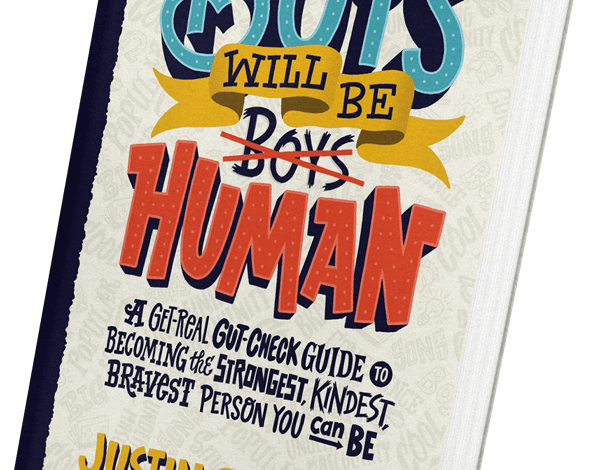While reading Justin Baldoni’s book Boys Will Be Human, I kept thinking of people I needed to pass this book on to next. Not just for male readers, it is a primer of sorts about acceptance and validation. Baldoni opens this topic early by writing: “Regardless of our genders, what’s important to our spiritual growth is learning how to be kind, loving, honest, of service, thoughtful, sensitive, loyal” (15) humans. Baldoni also argues that life isn’t a poker game where the winners are the most stoic players with the monetary and physical resources to bet high. We have to be willing to check our privilege and be courageous enough to own it so that we can “make the world a better and safer place for everyone” (165).
Because we often live a gamified version of the human experience via social media and related apps, where we crowd-source a personality, Baldoni wants to see society continually working on “changing the script” for gender socialization and emotional displays. We begin that process by accepting that “comparison is the thief of joy” (112) and by shifting our focus from victory—or being the best—to mastery—to always improving and getting better—since we are all works in progress. The process continues with confronting our doubts and questioning the conditioning that has led to our current predicament. As we dismantle the bedrock of our very foundation, we can begin to interrogate our fears, accept the skin we’re in, and embrace “compassion over comprehension.” After all, we don’t have to completely understand someone else’s experiences to have compassion for that individual.
To reveal these truths, Baldoni uses not only anecdotes from his own life but apt allusions to the X-Men and other characters. Additionally, he sprinkles the book with inspirational quotes and invites periodic reflection in what he calls “Gut Checks.” Understanding humanity in all its diversity requires representation. That comes from “hearing and seeing points of view of storytellers from all races, genders, sexualities, nationalities,” (176) and religions.
As Baldoni discusses our shared humanity, he addresses some issues that specifically relate to males—information about the penis, for example. Still, the book strives to break open several myths and to interrogate them. Even though heartbreak is real, Baldoni tells us, “It doesn’t have to destroy us or our self-worth” (276). Furthermore, the “no pain no gain” proverb isn’t just about “physical muscle building, but for emotional and spiritual muscle building, too” (287). At the conclusion of his book, Baldoni invites the reader to envision a world “where learning, questioning, curiosity, and growth are the norm. Where everyone is welcome. Where our differences aren’t shamed but celebrated” (290).
- Posted by Donna

